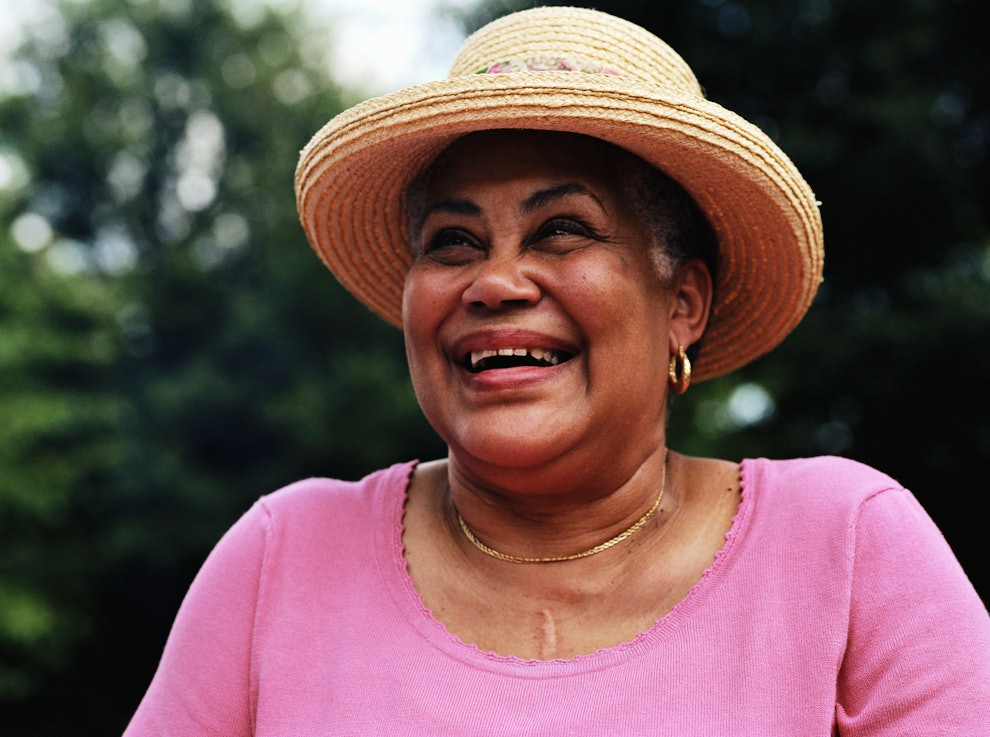
Disclaimer: If you are pregnant, nursing, taking any medication, or under medical care, consult a physician or healthcare professional before use. This product should be used only as directed on the label. Consult a physician before use if you have a serious medical condition or are taking prescription medications. Consult a physician before using this or any supplemental dietary product. All trademarks and copyrights are the property of their respective owners and are not affiliated with or endorsed by this product. These statements have not been evaluated by the FDA. This product is not intended to diagnose, treat, cure, or prevent any disease. Individual results will vary. By using this site, you agree to be bound by the Privacy Policy and all Terms and Conditions posted on this site. THIS IS AN ADVERTISING AND NOT AN ACTUAL NEWS ARTICLE, BLOG OR CONSUMER PROTECTION UPDATE. MARKETING DISCLOSURE: This website is a marketplace. So, you should know that the owner has a monetary connection with the products and services advertised on the site. The owner gets paid whenever a qualified lead is referred to them, but that’s about it. ADVERTISING DISCLOSURE: This website and the products and services mentioned on it are advertising platforms. This site is an advertisement and not a news publication. Any photographs of people used on this site are of models. The owner of this site and the products and services mentioned on this site only provides services to enable consumers to obtain and compare them.
Essential oils are highly concentrated plant extracts used for their healing properties. Supporters of this holistic treatment point to the various physical, emotional, and pharmacological (chemical) benefits of essential oils. Among others, these include reducing stress and symptoms of anxiety. If considering essential oils as a stress relief tool, some oils may be more effective than others.
Essential oils aren’t regulated by the FDA so it’s especially important to research different options and choose high-quality essential oils with specific plants that may reduce stress. To make that research easier, we compiled a list of the best essential oils for stress.

What are essential oils?
Essential oils are plant extracts that have been distilled or mechanically pressed into an oil. The extracts retain the smell, flavor, and health benefits of the original plant. Often, manufacturers press or distill many plants for one bottle of essential oil.
Many people use essential oils to treat different physical ailments and mental health conditions, such as depression, anxiety, low appetite, and insomnia. Often, essential oils are placed into a diffuser and the user inhales the scent; a practice known as aromatherapy. They can also be applied to the skin or placed in a bath, though additional safety practices must be followed for these two methods.
Do essential oils actually relieve stress?
While there is mixed research surrounding the correlation between essential oils and stress reduction, a meta-analysis of 25 studies published between 1990 and 2019 found that essential oils can reduce anxiety. Other studies support their effects on anxiety, depression, and mood disorders, though more research is needed for conclusive results.
Studies on how essential oils impact stress suggest inhaling certain essential oils calms the amygdala, the part of the brain responsible for fear and other emotions. This calming effect reduces anxiety, stress, and other negative emotions in the limbic system and other parts of the brain. It’s also possible to receive a similar effect after rubbing essential oils into the skin, though proper dilution must occur.
When essential oils are used properly, they most likely won’t increase stress and can create a calming atmosphere. They may decrease stress, especially if one of the top essential oils for mental health and stress relief is used.

Best Essential Oils for Stress
In a pharmacy, there are plenty of over-the-counter medications. They don’t all treat the same symptoms and can’t be used interchangeably. Essential oils work the same way, meaning some types reduce stress and others provide different health benefits. When purchasing essential oils to reduce stress, these ten scents may be particularly effective.
Lavender
Lavender essential oil is perhaps the best known oil for stress relief. It has been used as a calming scent for centuries, and recent studies support this claim. Lavender oil appears to calm the central nervous system, reducing anxiety. A 2013 study also suggests that lavender may help regulate mood, lower high blood pressure, and act as a preventative agent to maintain brain health.
Jasmine
Known for its floral scent, jasmine oil may be the most effective oil at reducing stress hormone production. In fact, a 2023 study ranked it as the best essential oil for those with generalized anxiety disorder and high levels of stress. Jasmine oil inhalation may also reduce high blood pressure caused by anxiety.
Bergamot
Bergamot, a citrus fruit often used in essential oils, may relieve stress as well. In a 2017 study, bergamot essential oil was used in aromatherapy treatments for patients at a mental health treatment center. 15 minutes of aromatherapy with bergamot essential oil improved the mood and stress level of participants when compared to the control group.
Clary Sage
Clary sage, an herb native to the Mediterranean, has been used medicinally for centuries. Often, clary sage essential oil is used to reduce menstrual cramps and labor pain due to its effect on the autonomic nervous system. Recent research reveals clary sage oil may also calm the autonomic nervous system and limbic system, reducing symptoms of stress and anxiety.

Chamomile
Chamomile tea is a natural remedy for stress, but this flower is one of the most popular essential oils to promote relaxation. For centuries, people have used chamomile essential oil to treat hay fever, inflammation, insomnia, and other types of pain. Chamomile extract therapy also reduces stress, especially a lack of sleep or chronic pain caused the stress.
Peppermint
Peppermint oil may help reduce anxiety and symptoms of stress. Specifically, peppermint may be good for reducing chronic pain and anxiety caused by a physical ailment. It also calms the body before a painful procedure. In 2019, a study found essential oil diffusers with peppermint calmed the anxiety and pain of patients receiving an intravenous catheterization.
Rose
While commonly known for its decorative purposes and its sweet aroma, the rose may contain healing properties for the body and mind. Research suggests that, when pressed into an essential oil, it acts as an antibacterial and antioxidant agent. Rose oil also may be used as a relaxant and to cultivate positive feelings, thanks to its physiological and psychological calming effects.

Orange
While orange is a great addition to your plate, orange essential oil also provides anti-stress benefits. However, not all citrus fruits provide the same relaxing effect. A 2018 study suggests sweet oranges and ylang ylang, another type of citrus fruit, may be more effective at relieving symptoms related to stress.
Note: When searching for a citrus essential oil to lessen anxiety, avoid neroli oil. This oil comes from the bitter orange tree. While neroli oil can help with chronic pain, it probably won’t reduce stress levels.
Lemon
That same 2018 study suggests that another citrus fruit, the lemon, may also be used to reduce anxiety. A few drops of lemon essential oil mixed with other essential oils, like lavender oil, may reduce stress and lower blood pressure.
Frankincense
In ancient times, frankincense oil was used as an aromatic resin for religious and healing purposes. People still utilize this essential oil today, claiming it is a natural mood booster and stress reliever. Advocates claim that frankincense essential oil calms the nervous system and reduces corticosterone levels.

How to Use Essential Oils
Essential oils are a general category for extracts with highly concentrated samples of plants, and there are many ways to utilize them. The most common is aromatherapy, when someone buys an essential oil in liquid format, diffuses it, and inhales the scent.
It’s also possible to apply essential oils to the skin directly or to place them in a bath. If someone chooses the latter two options, they must mix the essential oil with a barrier substance in a process referred to as diffusion. Barrier substances include certain lotions, aloe cream, and carrier oils, like tea tree oil, almond oil, and coconut oil. If not diffused, even a few drops of essential oil applied topically or in a bath is harmful to the skin.
Note: Since essential oils are not regulated by the FDA or another government organization, a doctor cannot prescribe essential oils. They are also not covered under private health insurance or Medicaid.
Customize Stress Relief
When stress-relieving essential oils are mixed, they can provide even more benefits. To customize your stress relief, consider DIYing the following blends:
- Lemon and bergamot for anxiety relief and improved mood
- Frankincense and chamomile for a grounding, calming effect
- Peppermint and lavender for stress relief and better sleep
- Jasmine and ylang ylang for anxiety reduction and to boost positive feelings
Essential Oils Safety
Using essential oils isn’t without its risks. Often, essential oil diffusers are safe to use, though diffusers must be cleaned regularly. You also want to purchase from a trusted company, as the CDC has recalled essential oil diffusers with harmful bacteria in the past.
To use essential oils safely in the bath or directly on the skin, dilute essential oils first. Most product manufacturers addressed safety on the essential oil label or their website, making it essential to read instructions before using a new oil. Only diluted essential oils should be applied to the skin or placed in water.
Essential oils are not regulated by the FDA, meaning not all are created equal. When purchasing a new essential oil, make sure to choose one from a trustworthy brand. Mass-market options may include less potent oils or synthetic oils, which won’t provide the same benefits as more potent oils.

Other Natural Stress Relievers to Try
Essential oil inhalation is one of many holistic health tools to manage stress. Exercise, eating a whole foods diet, and mindfulness practices like meditation and breathwork also help reduce stress.
If someone is suffering from a case of severe generalized anxiety disorder or another more serious issue, using essential oils and natural remedies may not be enough. In these scenarios, talk to a mental health professional, such as a therapist or psychiatrist. They can help determine the best stress management technique, such as medication or talk therapy. The optimal solution may also be a combination of natural remedies, prescription medication, and/or therapy.
Mental Health Resources
There are many resources available that can help you, a family member, a friend, or anyone else who may need mental health support. Some resources include:
- National Alliance on Mental Health (NAMI)
- Substance Abuse and Mental Health Services Administration (SAMHSA)
- 988 Lifeline
Therapy may also be effective. To find a therapist, visit:
- Good Therapy
- The Recovery Village
- Talkspace








Leave a Comment